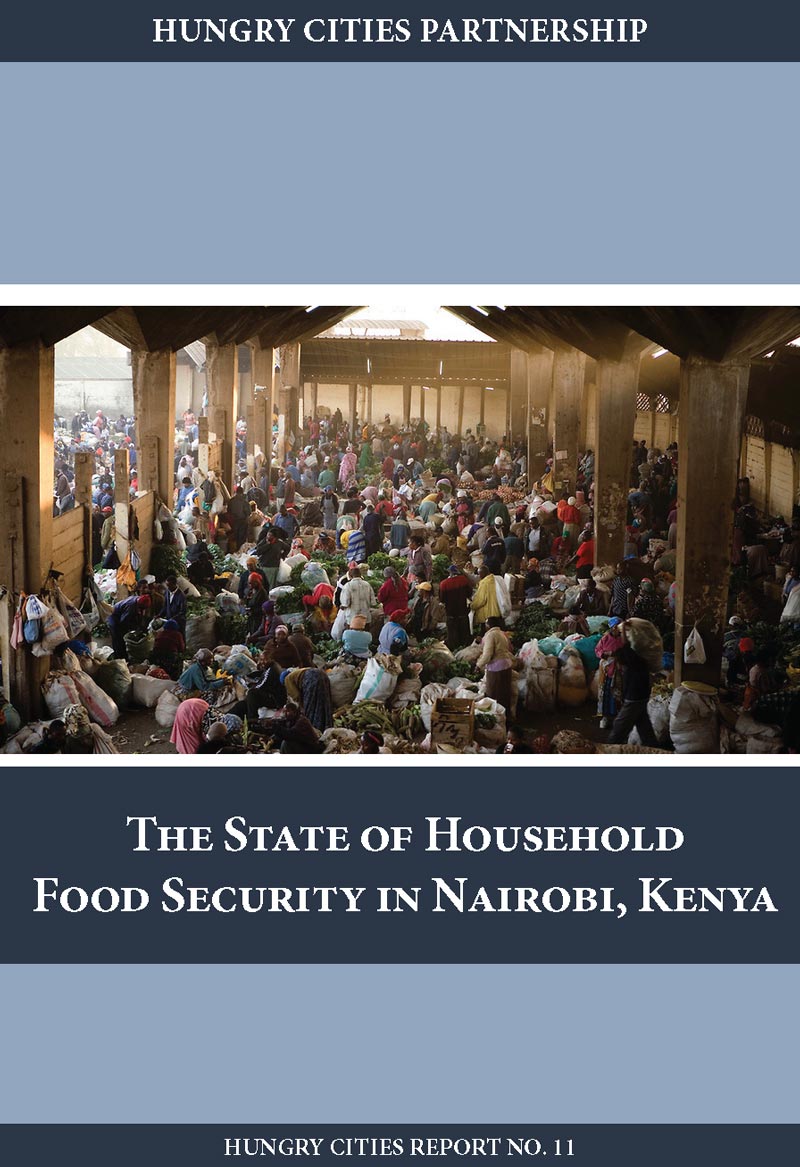This report presents the results of a city-wide household food security survey of 1,434 Nairobi households, conducted by the Hungry Cities Partnership and the University of Nairobi. Among the key findings was that 70% of households in Kenya’s capital experience food insecurity, with one-quarter severely food insecure. As the first city-wide survey of household food security in Nairobi, this report provides researchers and policy-makers with detailed data and information about the overall food security picture, as well as important insights into the operation of the city’s food system. In particular, the report demonstrates the vital importance of Nairobi’s food markets and associated informal food sector. Consumers believe that the informal food economy offers a wide range of products at a cheaper price than formal food outlets. However, the choice of formal or informal food sources depends on perceptions of a range of factors including affordability, variety, flexibility, proximity, convenience, credit facilities, health risks, freshness and quality. The Hungry Cities Food Purchases Matrix shows which kinds of foods are purchased at which outlets, as well as how many households purchase a particular food item. Findings include that informal markets are popular for fresh vegetables, fruits, chicken and fish, while supermarkets are the main source for maize meal, rice, pasta, tinned foods, frozen foods, tea, coffee, sugar and confectionary.

